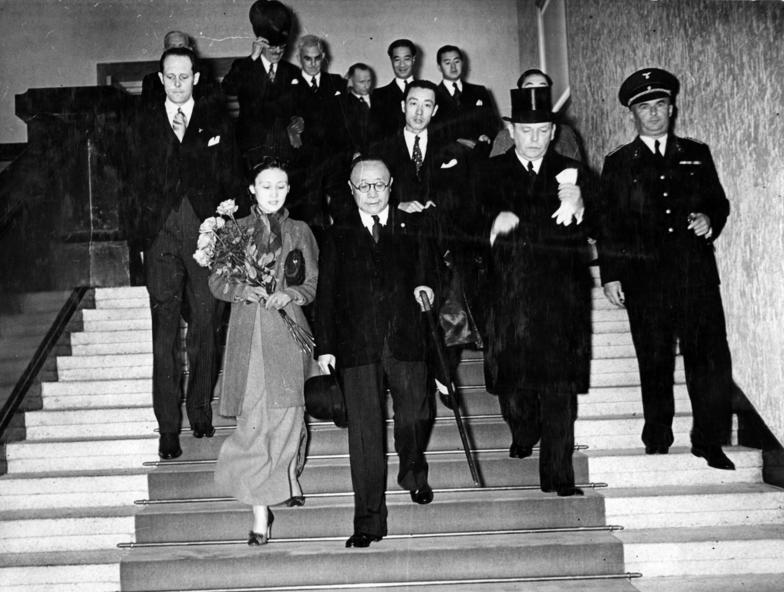Source

Source: Berlin, Arrival of the Chinese ambassador, Bundesarchiv, Bild 183-H12630, available at Wikimedia Commons, https://commons.wikimedia.org/w/index.php?curid=5364002
After World War I, there was a rapprochement between China and Germany because both states felt disadvantaged by the postwar order—Germany because it had lost its colonial claims, China because it continued to be subject to the colonial claims of Britain, France, Japan and the United States. In the 1930s, the Nazi government actively sought trade relations and agreements with China, primarily to import raw materials essential to the war effort. In 1933, General Hans von Seeckt was appointed by China's Nationalist government as an advisor on military and foreign economic development. With German support, the railroad network was expanded, industrialization advanced and the Chinese military modernized. However, cooperation ended with the outbreak of the Sino-Japanese War in 1937, as Hitler chose Japan as a military ally, contrary to industrial interests. After Hitler signed the Tripartite Pact with Japan and Italy in late 1940 and recognized the puppet government in 1941, relations between Germany and China finally broke down. This image depicts the arrival and reception of China’s new ambassador, Chen-Chih, and his daughter at the Anhalter Bahnhof train station in Berlin in September 1938. He is greeted by high-ranking Nazi officials from the foreign ministry, consul Schubert (right) and counselor von Strachwitz (left).

Source: Berlin, Arrival of the Chinese ambassador, Bundesarchiv, Bild 183-H12630, available at Wikimedia Commons, https://commons.wikimedia.org/w/index.php?curid=5364002